Redcar steelworks: Health fears over steelworks clean-up
- Published
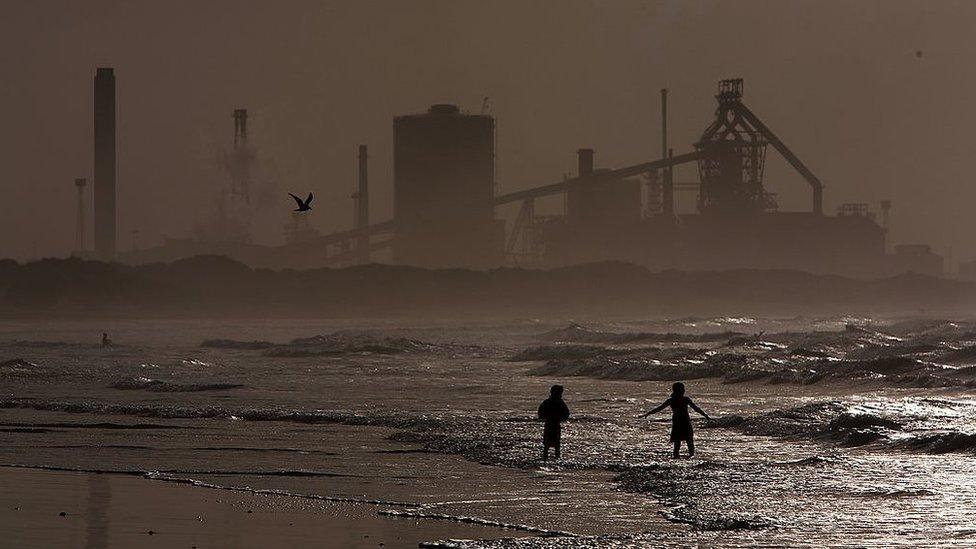
Steel production at the Redcar works ceased a year ago
It has been a year since steel production ceased on Teesside. The site clean-up will cost millions and could potentially be dangerous to the residents of Redcar, but who will pay the costs?
As soon as the dust started to settle on the former SSI steelworks in Redcar, questions were raised about what should be done with the site.
The 1,400-acre industrial zone will need to be cleaned of hazardous chemicals, but history has shown how dangerous that can be.
Nineteen children were born with deformed feet and hands in Corby, Northamptonshire, in the 1980s and 1990s after their mothers inhaled toxic particles while pregnant.
The problem was caused when the town's steelworks, which closed in 1980, was being cleaned, the families' solicitor Des Collins said.
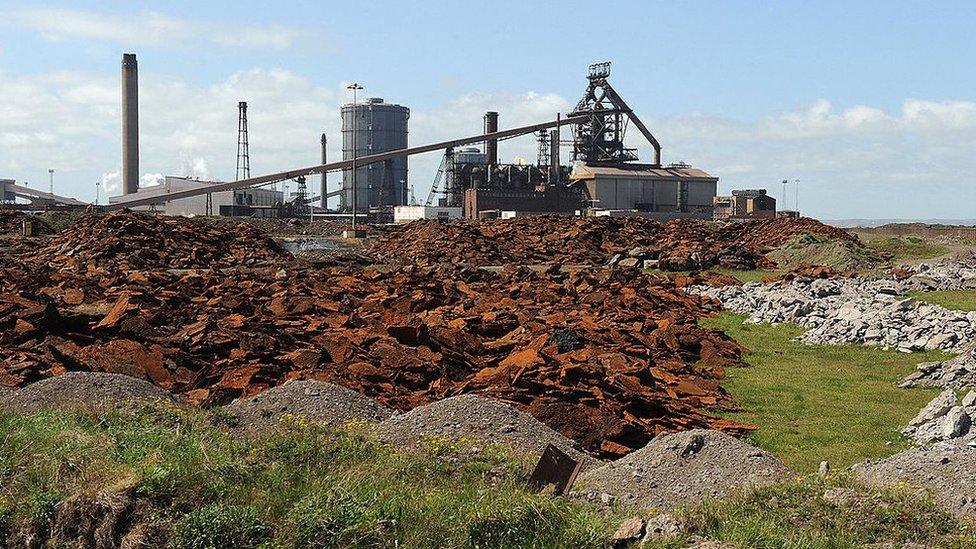
More than 2,000 people lost their jobs when the steelworks closed
Toxic waste from the works was transported via truck to another site across town for burial.
"What they didn't appreciate was that if the material was in the back of a lorry then it could disperse into the air," said Mr Collins, who represented the affected families as they won a multimillion-pound compensation claim in 2009.
The lessons learned from Corby need to be applied to Redcar, he said.
Similarly dangerous chemicals can be found at the Redcar works.
Former employee Brian Dennis, who was employed at the works for 26 years, said these included naphthalene, benzene, tar and ammonia.
"The longer you leave it they could leach into the water courses and into the river," he said.
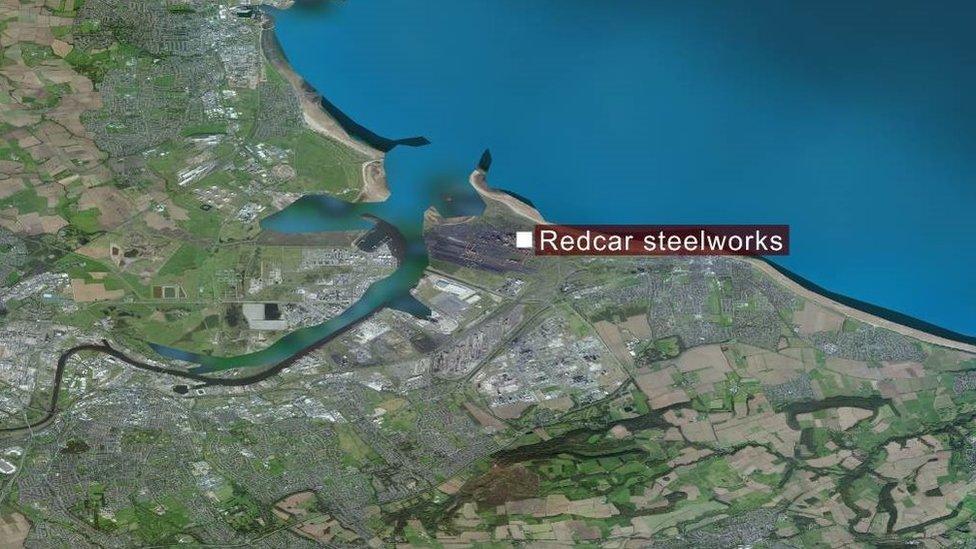
The 1,400-acre site stretches along the River Tees
The last thorough environmental study of the site was carried out more than 10 years ago, but it reveals the presence of various metals and metalloids such as arsenic, chromium, cadmium, zinc, nickel and boron.
"They are carcinogens," said Karen Johnson, a senior lecturer in environmental engineering at Durham University.
"These risks are cumulative, it's not as if you walk on to the site today you are going to get multiple organ failure.
"But if we did nothing with the site and there is a lot of dust generated and people were inhaling that dust on a daily basis for weeks to come, months to come, years to come, then they will suffer ill health."
The next question is who should pay for the clean-up, but the answer to that is far from clear.
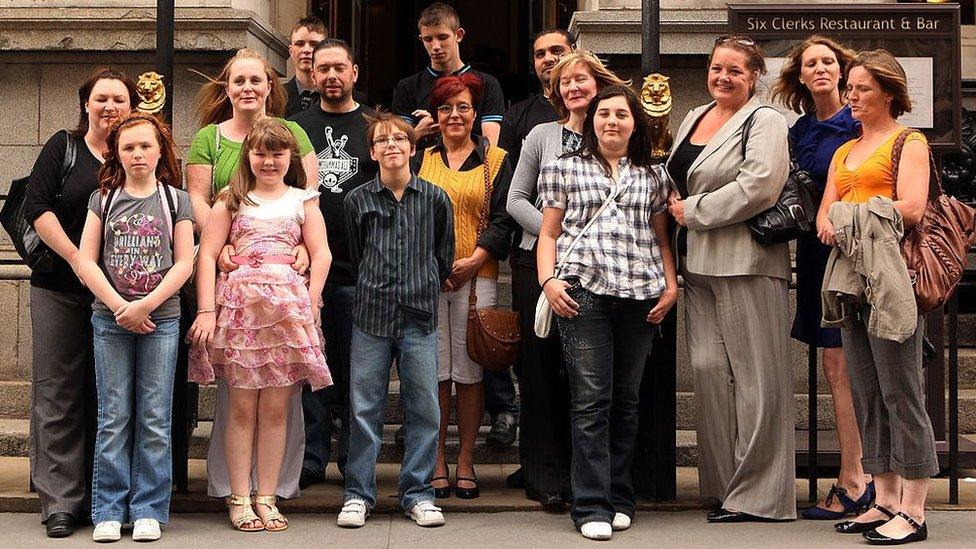
The families of those affected by the Corby clean-up won compensation in 2009
In February, shortly after the closure was confirmed, Lord Heseltine, who the government appointed to chair a group looking at increasing investment in Teesside, said the government would foot the bill whatever the cost.
"No-one knows what the condition of the site is and although there have been estimates, they are estimates based on guesswork," he said.
"So it is much better to make it clear, central government will pay the clean-up costs and underwrite them, whatever the bill comes to."
But a government spokesman refused to endorse Lord Heseltine's open promise and said there would only be money for site maintenance and a contamination survey.
Now Lord Heseltine's message has changed.

Lord Heseltine initially said the government would foot the clean-up bill
"You are left with this uncomfortable question," he told the BBC's Inside Out programme.
"What does the clean-up mean? Until you have found out what it means and how long it takes and the composition of it, you can't be precise."
When pressed on the promise he made, he said: "I think in the context that I was talking it was perfectly reasonable because the government had produced £40m (to aid the closure); it's a lot of money you know."
Even if funding and a method were agreed upon, the clean-up would be unable to commence until an ongoing legal wrangle is untangled.
Three Thai banks still have a claim on the plant - and they say they will not release this until they are repaid the £350m they lent SSI, whose UK branch went into liquidation.
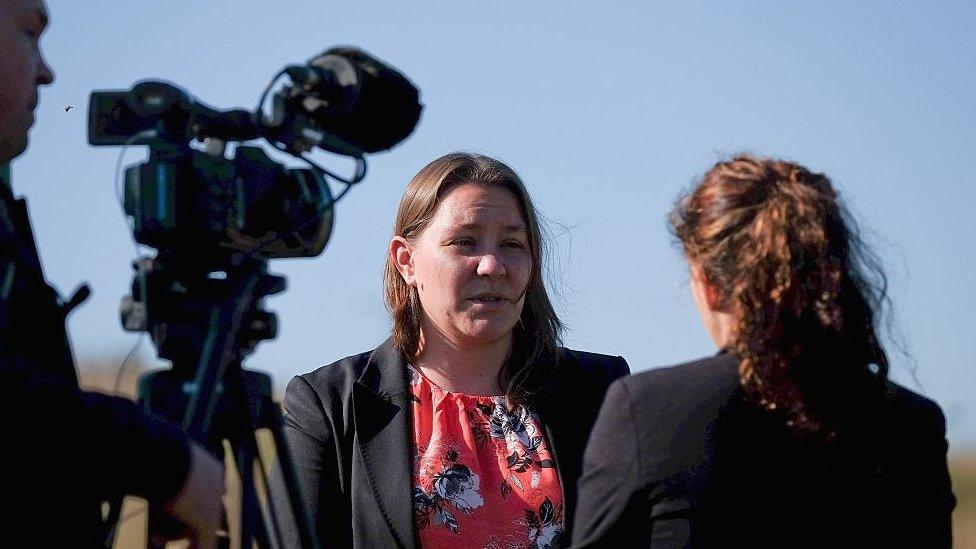
Redcar MP Anna Turley wants something to be done with the site
"We are essentially being held to ransom by banks in another country," said Anna Turley, Labour MP for Redcar.
"For me the absolute priority now is for the government to step up. They are the ones that can influence them through diplomatic routes or financially to try and cut the ties with the Thai banks so we can progress and move on and take control of the site."
But the government is refusing to pay the banks.
"It's not the government's money," said Conservative MP Anna Soubry, who was business minister until July.
"It's the taxpayer's money and I don't see how £350m of taxpayer's money would go to a bunch of Thai banks, frankly.
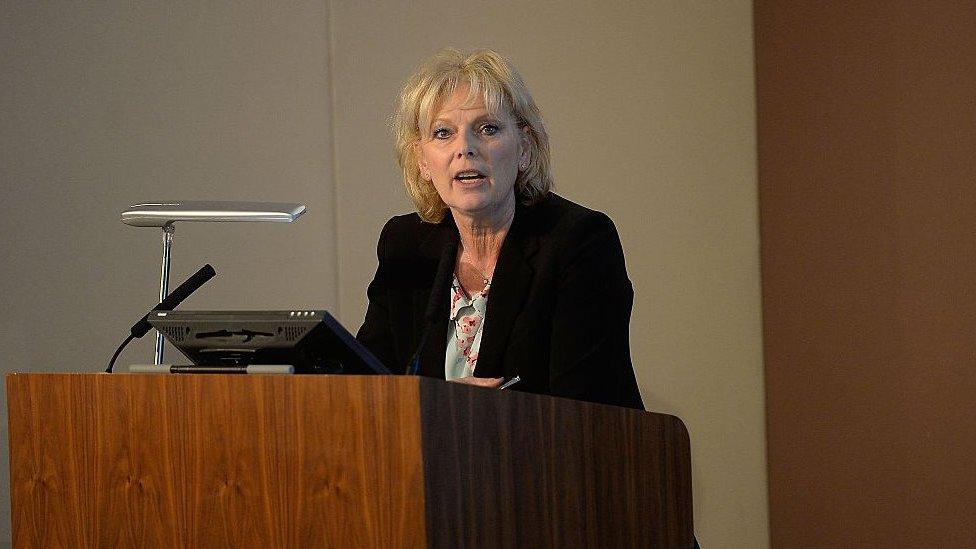
Anna Soubry was business minister when the steelworks closed
"We need to get on with it and we need to get the future of the site secured, whatever the difficulty is between the receiver and the banks, that needs to be sorted out.
"Then we need to see the site being redeveloped and that means that the steelworks has to come down.
"The potential is there."
In the meantime, the site simply sits.
Even politicians from across the party divide are in agreement that something needs to happen.
Ms Turley said the frustration was deep for those who were once proud to work there but now see the works sitting in a "coma state".
Ms Soubry, who is now on the backbenches having been business minister during the closure, has also said it would be "wrong" to "let it sit there for decades".
"I spent 26 years in the place," said Mr Dennis, "put my heart and soul into it.
"Now to find it left rotting and dilapidated and no plan going forward, it's heartbreaking."
BBC Inside Out North East and Cumbria is broadcast on BBC One at 19:30 BST on Monday 26 September and nationwide on the iPlayer for 30 days thereafter.
- Published19 September 2016

- Published13 September 2016
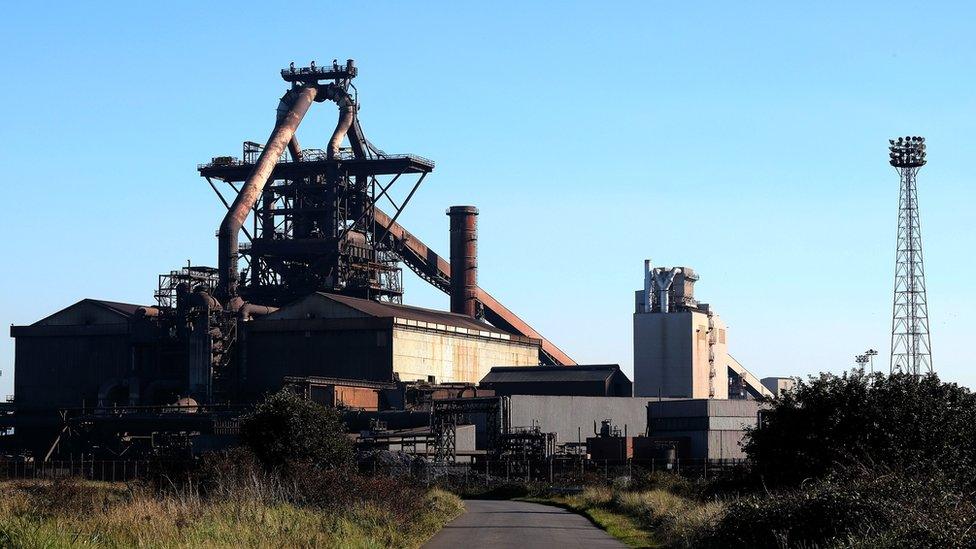
- Published3 March 2016
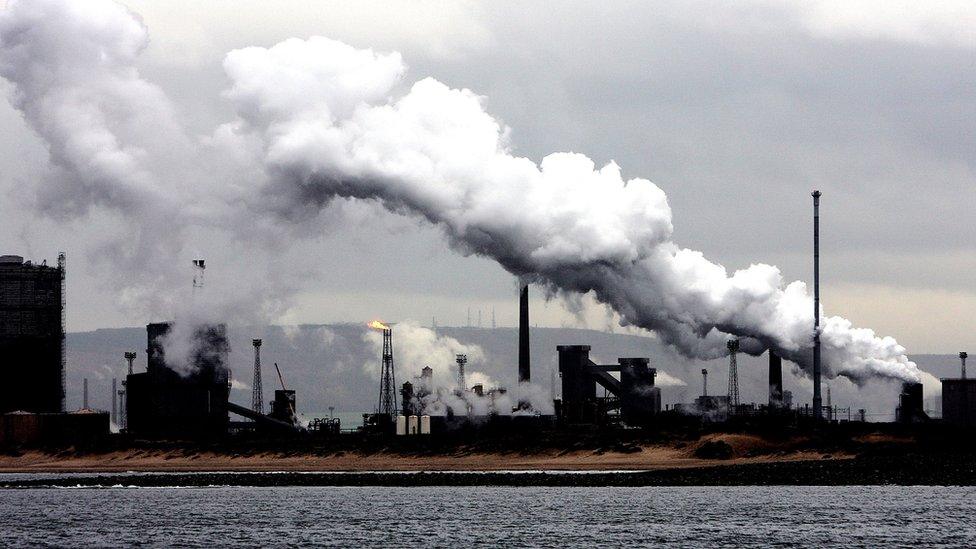
- Published12 October 2015
